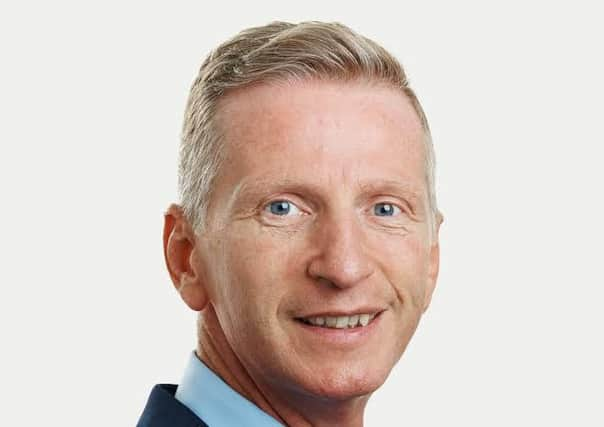Mark McFall: Inclusion goes way beyond targets


However, for it to be more than a slogan, it needs to be at the heart of business, in all forms. It is therefore pleasing to see that some organisations are leading the way in spectacular fashion.
The 2016 Stonewall Report, which measures the most inclusive employers in Britain, tells us that MI5 comes out top, which may surprise some. In terms of private sector organisations, Lloyds Banking Group leads from the front, recording its best ever performance and taking the number two spot. With organisations such as RBS, PwC and Pinsent Masons also making the top 40, it seems that financial services and professional services organisations are taking inclusion seriously and at the same time really benefiting from recruiting from sometimes hard-to-reach groups.
Advertisement
Hide AdAdvertisement
Hide AdTo do this they are tackling the issues at a variety of levels. Yes, big ticket gender and ethnicity programmes are bearing fruit, with targets for leadership roles set and well on their way to being met. However, those charging out front are not just focusing on the inclusion or diversity “headliners”, but are creating innovative bespoke programmes that specifically target harder to reach groups.
Last week, I attended a session held in London by Lloyds Banking Group, intended to update the organisation’s partners on the organisation’s inclusion and diversity policies, and it was a revelation. It got me thinking – what are other businesses doing with the LGBT community? And, specifically, how are they working to include the transgender/gender non-binary community?
According to Kimberley Bird, head of group risk systems at Lloyds and chair of the organisation trans*formation, 1 per cent of the population of the UK would consider themselves gender non-binary or transgender – and unemployment within this group is far higher than the national average. This can have some fairly specific impacts – why should some people be resigned to a less fulfilling career? In a market where talent is short – particularly in financial services – it would be foolish to ignore potential on the doorstep.
As has happened with “women” and “ethnic groups”, it’s surely right we start to look at groups within the LGBT community specifically, as opposed to a broader brush approach. There are key issues that affect different people within the umbrella of “LGBT” and by understanding these, and perhaps changing some policies, or recruitment techniques, we can open up employment to a more diverse workforce.
This might happen naturally as our children take over our workplaces – 50 per cent of the future workforce already see gender as a spectrum. With 71 ways to describe your gender on Facebook, the digital natives will naturally think beyond male or female.
But that’s too long to wait for talented people on the fringes of the workforce. How do we make changes now? There are three key areas we, as a business community need to focus on:
Awareness: There is an issue. That’s just a fact, and to overcome it, we all need to start asking questions. The challenge is often knowing what questions to ask, and then of course, are we prepared to make the necessary changes based on the answers we get? Do we know who to direct our questions at? There is a whole new terminology which we need to learn to avoid offending without meaning to. All this means many are afraid to start ask the questions in the first place.
However, think about this for a minute. As an employer, we would never ask a woman if she was thinking of having babies – in the main we’ve all been educated that this isn’t appropriate so we just don’t do it. What are the questions that are inappropriate to ask a person that is gender non-binary or transgender? How confident or knowledgeable are any of us in this area? Not very? Well, me neither – which is why I found an organisation that could help with my questions.
Advertisement
Hide AdAdvertisement
Hide AdPolicies/Procedures/Training: We should all want good outcomes, for everyone. That’s as good a starting point as any. Some people will be better at handling certain situations than others, and the challenge is to try to standardise the approach. Even small steps might make a huge difference.
On the back of last week’s session with Kimberley, I’ve already asked our HR manager to give thought to our current diversity policy – how can we get past “equal opportunities” and be more specific, more inclusive?
The final leap is to challenge. Challenge yourself, challenge partners, challenge suppliers. Challenge your socks off, talk about issues and ask the questions. It’s time we really tackle organisations on the diversity of their workforce. I’m a great advocate of “best candidate for the role”, but if that position is taken after an inclusive search, then great things can happen within our workforce.
• Mark McFall is managing director of Change Recruitment Group